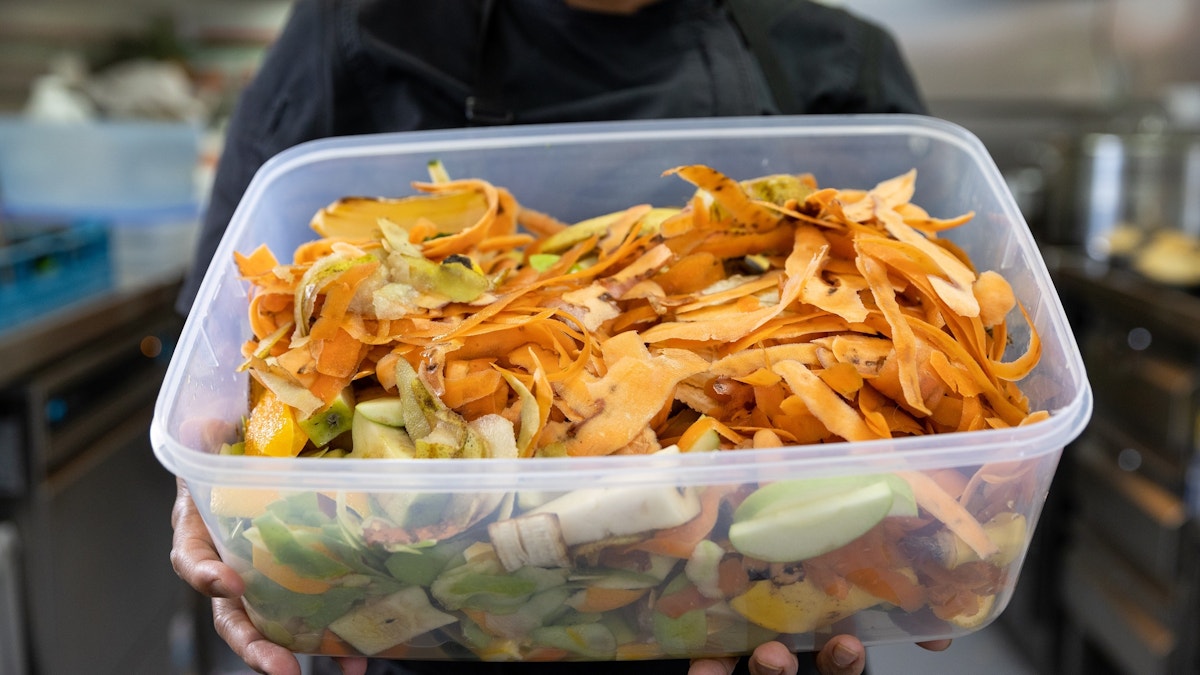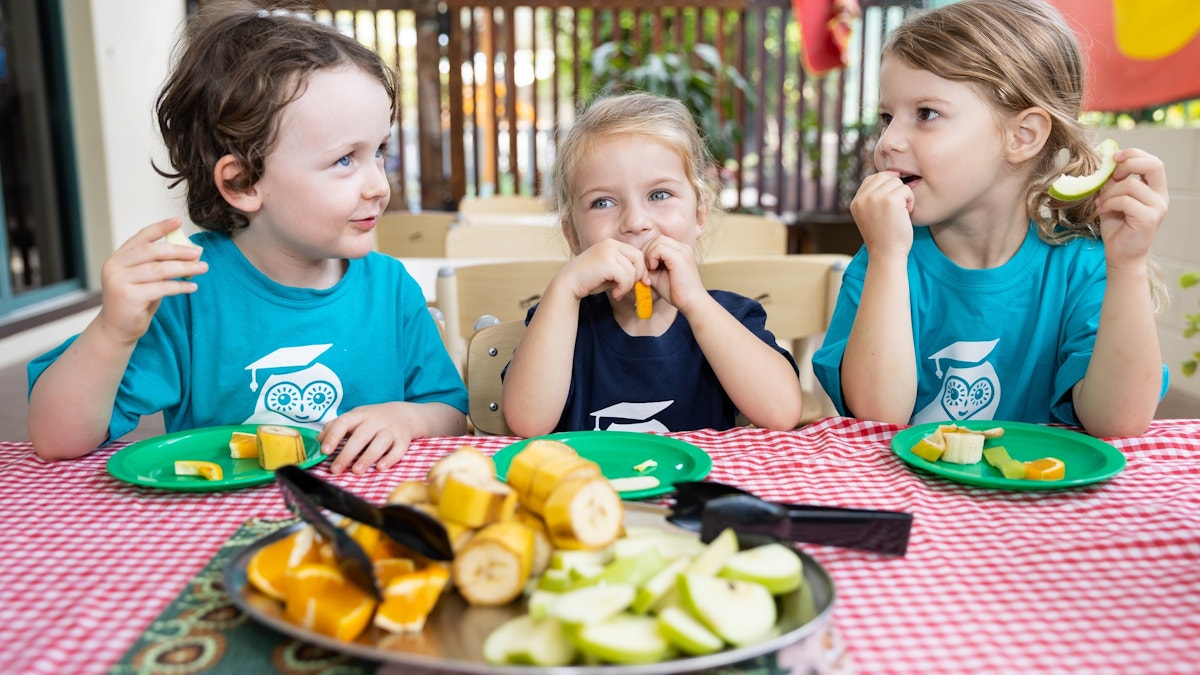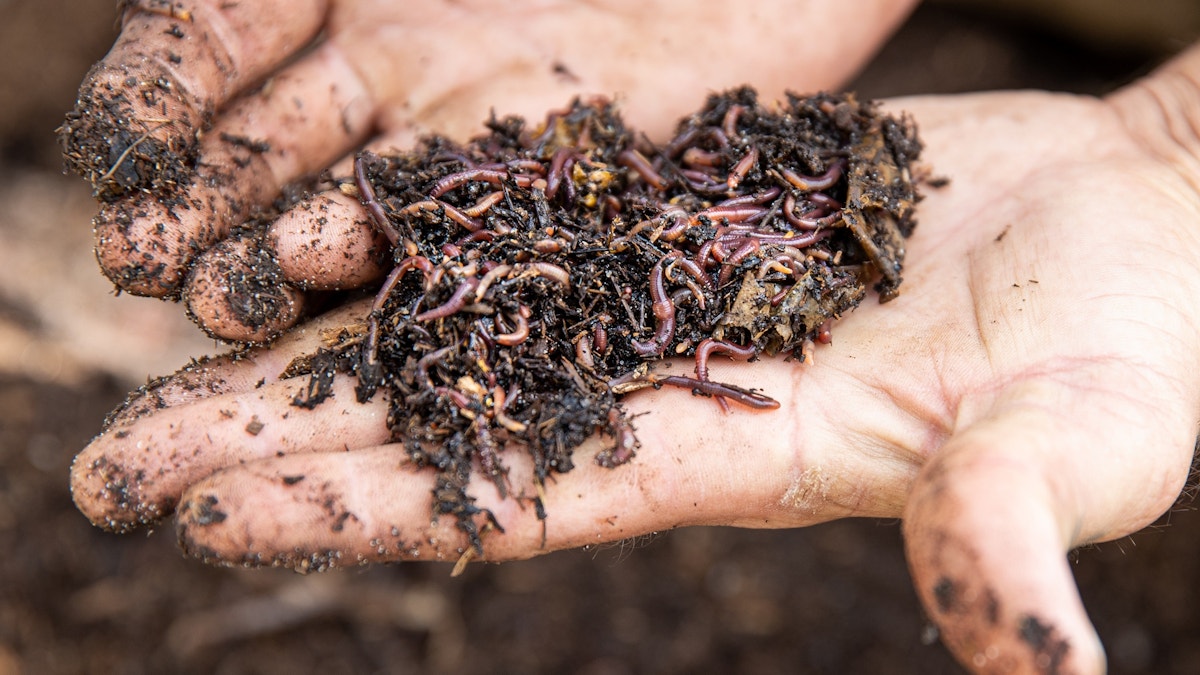
Teaming up to close the food loop
Published 7:30am 7 February 2023

 Words by Kylie Knight
Words by Kylie Knight
A partnership between Sesame Lane Care and Kindergarten and a Beachmere-based business is turning food waste from all its centres into compost, soil and worm castings.
It follows a successful trial at its Clontarf centre, with In the Loop BNE, which ran for one year and started in June 2020.
Since then, Sesame Lane has been rolling out the initiative across all its centres in a staged approach to reduce food waste to zero.
Mitch Langfield from In the Loop BNE explains how it works.
“The whole system is called a closed loop system. It’s where the food waste gets produced, I collect it, it gets turned back into compost, the compost is then used to grow food and then goes back into the kitchen. So, nothing actually needs to be wasted and you’re continually building nutrient density in whatever garden you’re getting your food from,” he says.
“The end goal is to produce a really high quality compost, something that going to a lot of nutrients back into the soil.”
According to the Climate Council, rotting food produces methane, a potent greenhouse gas.
In sending this food waste to landfill, Australians are generating the methane equivalent to about 6.8 million tonnes of carbon dioxide.

Perfect partnership
Sesame Lane Food Services Co-ordinator Tiffany Turner says partnering with Mitch to make better use of food scraps from Sesame Lane’s 14 centres makes sense.
“We cook over 5000 meals every week at Sesame Lane and that produces quite a lot of food scraps in that process,” she says.
“Our goal for 2023 is to have zero food scraps going into landfill. Partnering with Mitch from In the Loop, will provide us with a sustainable practice to lead us to our goal.
“Each day, our chefs provide each classroom with a small rubbish bin for food scraps. They come back to the kitchen and then they are simply placed into a larger bin and at the end of each day, our chef takes all the food scraps to a main bin for Mitch to collect at the end of each week.
“Six short weeks later, Mitch brings back beautiful soil for us bursting with nutrients for the children to grow their vegetables and their herbs which supports our Owlbert Garden Program.”
Tiffany says it is a complete loop to create a healthier environment.
“The kids get really excited and know their scraps have been turned into soil which is used to grow fruit and vegetables and flowers,” she says.
“They love the garden, which is a calming, soothing space. Our garden program started because I brought a homegrown banana in and a little girl told me bananas come from Coles.”
The program has literally grown from there and children now have a better understanding of how they can make a difference.

Shared passion
It’s an important piece of the puzzle for Mitch, who is passionate about community education on how to reduce food waste and improve soil quality.
The former professional wakeboarder’s interest in soil was sparked at his Beachmere property, which is a former sand mine and had poor quality soil when he moved there.
“I kind of accidentally got into soil. When you move onto a property you plant trees and create gardens but everything led me back to worms,” Mitch explains.
He says worms and compost have been essential to revitalising his property and improving soil health in general.
A friend he’s known since school, Josh Thompson, was into organics as well and initiated the partnership with Sesame Lane where his mother works.
The pair launched the business together and Mitch took it on when Josh left to work on a farm.
He has refined the process along the way, experimenting with different methods to determine which work best.
Mitch uses ‘hot composting’ to break down the food waste in about three weeks. It then goes to a ‘curing pile’ where the compost has a chance to cool down before it is sifted and fed to the worms or sold as compost.
He has 26 worm farm bins with 20,000 worms in each one.
“They can process about 50L of food waste each week per bin,” he explains.
Mitch loves that the zero food waste message will flow from children to their parents as a result of his partnership with Sesame Lane.
“Most families will have a veggie garden – whether it’s full of grass or veggies. If you get good soil or make good soil, it’s not so hard to grow veggies. That’s where I get my enjoyment, you see the kids enjoying it … and then the parents get to reap the benefits if they get interested in it as well,” he says.
In the Loop BNE is also working with cafes and another childcare provider in the Moreton Bay Region. To find out more, visit the website

Related Stories
Top Stories

Vote for Moreton Bay Art Prize people’s choice award
There’s still time to vote for your favourite piece in this year’s Moreton Bay Art Prize exhibition.


Popular Stories

'Priority' given for Waraba plans
Waraba, formerly known as Caboolture West, will be the 36th Priority Development Area in Queensland, unlocking land for 30,000 new homes and an estimated 70,000 new residents.

Trai Fuller: ‘It’s always felt like home’
Praised by Wayne Bennett for his courageous style of play and loved by long-time Dolphins fans, Trai Fuller has locked in a two-year deal with the club he calls home. He tells us why it means so much to him

4 Ingredients author to share her favourite recipes
Best-selling author behind the hugely successful 4 Ingredients cookbooks, Kim McCosker, will share three of her favourite recipes when she takes to the stage at this year’s Moreton Bay Food + Wine Festival. Find out what she plans to make here












